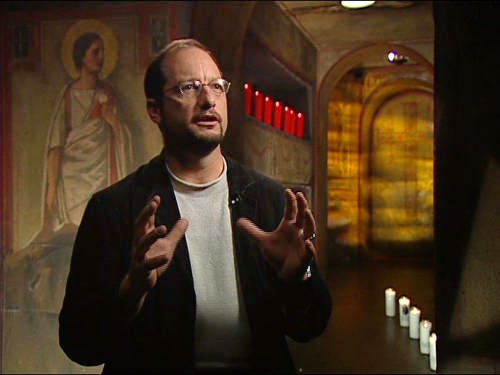The Roman Catholic Church has long held that Jesus had no actual siblings. Given the evidence I mentioned in the previous post, how did they arrive at this conclusion?
It is important to realize that many Catholics hold to the doctrine of the "assumption of the virgin." To these Catholics, Mary was not only a virgin when she had Jesus, but remained one her entire life. When her life ended, she was taken to Heaven instead of dying.
Many Protestants have pointed out the Bible only mentions Mary being a virgin when she had Jesus and not for her entire life. In fact, there is no verse in the Bible that indicates Mary remained a virgin after giving birth to Jesus.
Bart Ehrman, a well-known New Testament scholar, shared two of the traditional arguments Catholics have used to make their case.
"In the older of the two views, the "brothers" of Jesus were the sons of Joseph from a previous marriage. This made them, in effect, Jesus' stepbrothers," Ehrman said.
It is possible Joseph had children from a previous marriage and that Joseph's previous wife had died or the two had gotten a divorce. But if ALL of his children were from the previous marriage, why are these children not mentioned in the Gospel stories that describe Mary and Joseph's trip to Bethlehem for Jesus' birth?
It seems hard to believe that both Matthew and Luke would have left out such a fascinating story at the beginning of their respective Gospels. Surely they would have found it noteworthy to share Mary and Joseph's journey to Bethlehem with at least six children! That would have been quite an interesting scene.
Given the fact that Mary had Jesus at a very young age, I find it hard to believe she would not have any more kids during her life. She was a virgin when she had Jesus, but obviously Jesus was divine and the others were not. The point of the birth narratives is Mary was a virgin when God chose her to have Jesus.
I think the much more likely scenario is that after giving birth to Jesus, Mary later gave birth to the other six (or more) siblings mentioned in Matthew and Mark's Gospels and these siblings were all younger than Jesus.
Another argument that was used to deny Jesus had siblings was used by the fourth-century church father, Jerome. Jerome was an ascetic, meaning he denied himself many pleasures, These pleasures included sex.
Since Jerome believed Christians should abstain from sex, the church father claimed that neither Mary nor Joseph had sex.
So who were these "brothers" of Jesus then? For Jerome and other Catholic thinkers, the brothers were actually cousins of Jesus.
Ehrman explains why that theory is problematic.
"The main problem with this view is that when the New Testament talks about Jesus' brothers, it uses the Greek word that literally refers to a male sibling. There is a different Greek word for cousin. This other word is not used of James and the others."
It should be noted that Catholics still hold James, the brother of Jesus in high respect. They simply do not view him as related to Jesus the way other Christians do. I have no problem with either of the two Catholic views on the subject, but do not believe they are historically accurate.
Since the Greek word for brother cannot be taken to mean cousin and since several different passages in the New Testament refer to Jesus' brother, or even all of his siblings, I see no reason to believe these brothers were cousins or even stepbrothers and stepsisters of Jesus. These were the earthly brothers and sisters of Jesus of Nazareth, our Lord.
NOTE: Dr. Ehrman is a professor at the University of North Carolina in Chapel Hill. He has some fascinating things to say about Early Christianity. Since he is not a Christian, I absolutely disagree with him on the subject of the Resurrection and divinity of Christ. However, he does make some great points at times about Early Christianity and his religious views do not mean he is any less qualified to address questions such as these.


No comments:
Post a Comment